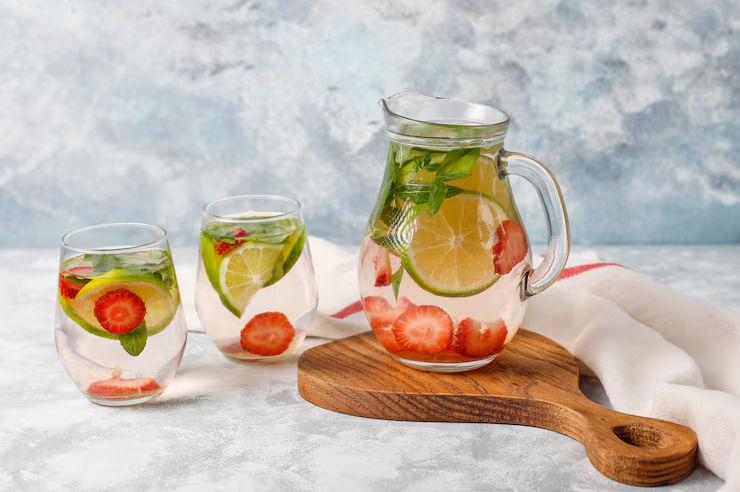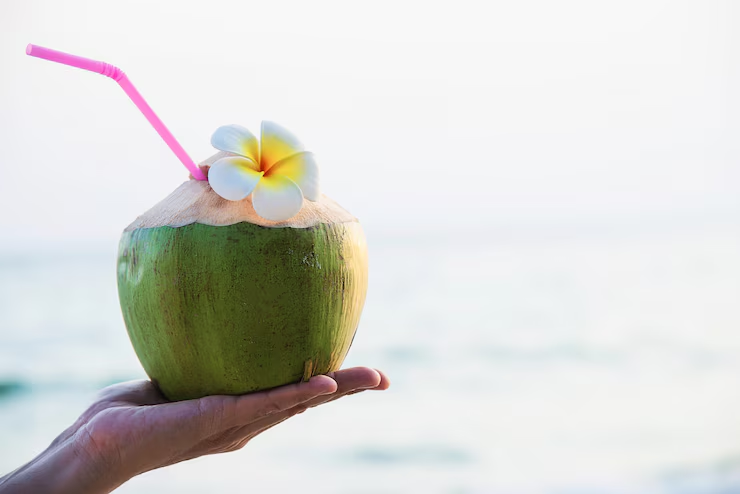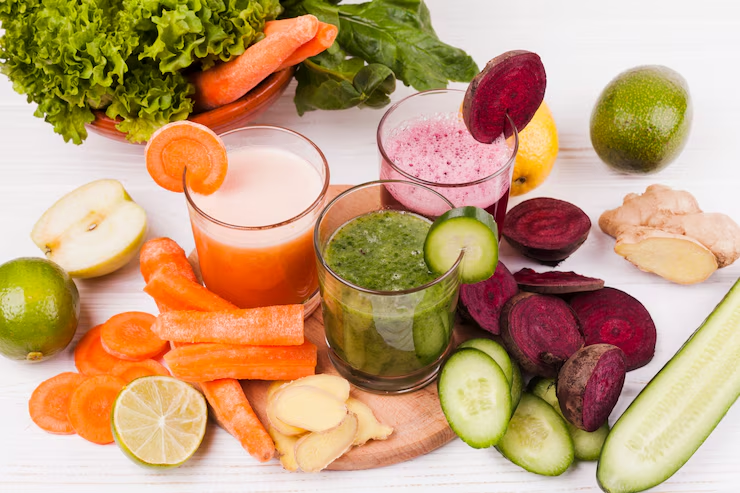In recent years, there has been a strong shift toward healthier beverage choices as more people become aware of how diet affects overall wellness. Consumers are now more careful about what they drink, paying close attention to ingredients and nutritional value. This change in mindset is largely driven by growing health concerns and the desire to maintain a balanced lifestyle.
One of the biggest concerns for today’s consumers is the high level of sugar in many traditional drinks. Sugary beverages are linked to several health problems such as weight gain, diabetes, and heart disease. As awareness of these risks grows, people are actively looking for better options that don’t compromise their health. This has led to a surge in interest in low sugar drinks.
Low sugar beverages are crafted to offer great taste without the harmful effects of too much sugar. They provide a healthier alternative while still being enjoyable. This trend reflects a wider move toward smarter and more conscious eating and drinking habits.
What Are Low Sugar Drinks ?
Low sugar drinks are beverages made with little to no added sugars or naturally occurring sugars. They are specially created to have a much lower sugar content than traditional sugary drinks like sodas, sweetened fruit juices, and energy drinks. These beverages aim to offer a refreshing taste while helping people reduce their overall sugar intake.
Reducing sugar in the diet is important because too much sugar is linked to several health problems. Regular consumption of high-sugar drinks can lead to issues such as obesity, type 2 diabetes, and tooth decay. By choosing low sugar drinks, individuals can enjoy flavorful beverages without the risks that come with excessive sugar consumption.
These drinks are not limited to one type. They include a variety of options such as unsweetened teas, black coffee, and fruit-infused waters that use no sweeteners at all. Some also use low-calorie natural or artificial sweeteners to maintain taste while keeping sugar content low.
The growing popularity of low sugar drinks reflects a shift in consumer preferences toward healthier, more balanced choices. They are now a common part of many people’s daily routine.

Why Are Low Sugar Drinks Important ?
The importance of low sugar drinks lies primarily in their ability to support healthier lifestyle choices and reduce the risk of chronic diseases. Here’s a detailed look at why low sugar drinks matter:
Combating the Sugar Epidemic
Over the past few decades, global sugar consumption has surged, mainly due to the easy availability of sugary beverages. Many people consume far more sugar than health experts recommend—exceeding daily limits set by organizations like the American Heart Association. Just one sugary drink can surpass the suggested intake. This excessive sugar intake is closely linked to health problems like obesity, type 2 diabetes, heart disease, and dental decay. Replacing sugary beverages with low sugar drinks can help reduce these risks by significantly lowering sugar consumption.
Supporting Weight Management
Weight control becomes more manageable when sugary drinks are replaced with low sugar drinks. Regular soft drinks add a lot of calories without offering a sense of fullness, making it easy to overconsume. By switching to low sugar drinks, individuals can cut down on unnecessary calories while staying hydrated and satisfied, which supports long-term weight loss or maintenance goals.
Better Blood Sugar Control
For people with diabetes or those at risk, low sugar drinks are a healthier alternative. Unlike high-sugar beverages, they cause fewer blood sugar spikes, helping maintain steady energy and reducing the risk of insulin resistance. These drinks support better blood glucose control, making them a smart choice for daily hydration.
Dental Health Protection
Sugary drinks feed the harmful bacteria in your mouth, leading to cavities and tooth decay. Frequent consumption of these drinks can erode tooth enamel over time. Low sugar drinks minimize this risk by reducing sugar exposure, helping to protect teeth and support better oral hygiene.
Hydration Without the Crash
Many sugary beverages provide a quick energy boost followed by a crash, especially those containing caffeine. In contrast, low sugar drinks offer steady hydration without sharp rises and falls in energy. Drinks made with natural flavors, electrolytes, or mild caffeine sources deliver smoother energy and keep the body well hydrated throughout the day.
Enhanced Taste and Variety
Gone are the days when low sugar meant bland. Today’s low sugar drinks come in many exciting flavors—from sparkling waters with fruit essence to unsweetened teas and botanical blends. These options make it easier than ever to enjoy great taste while making healthier drink choices.

How to Identify Low Sugar Drinks
Understanding nutritional labels is crucial for identifying low sugar drinks.
Here are some tips:
Check Total Sugars: Look for drinks with 5 grams of sugar or less per serving to be considered low sugar.
Look for “No Added Sugar” Claims: These drinks don’t have sugar added during processing.
Watch Out for Natural Sugars: Some beverages like fruit juices contain natural sugars, which can still impact blood sugar.
Know the Sweeteners: Artificial sweeteners (like sucralose or aspartame) and natural ones (like stevia or monk fruit) can be used to maintain sweetness without sugar.
Top Low Sugar Drinks to Try Today
Here is a curated list of the top 8 low sugar drinks that combine great taste, health benefits, and accessibility
Sparkling Water with Natural Flavors

Sparkling water has become a popular choice for those looking to cut down on sugary beverages. It offers the same fizzy satisfaction as soda but without the high sugar content. As more people focus on their health, sparkling water stands out as a refreshing and guilt-free option.
Many well-known brands now provide naturally flavored sparkling waters that contain no added sugars or calories. Popular options like LaCroix, Perrier, and Spindrift—made with a splash of real fruit juice—give consumers a delicious way to enjoy carbonation without unhealthy ingredients.
As part of the growing trend of low sugar drinks, sparkling water is an easy switch for those seeking better hydration with flavor. It supports healthier habits while still delivering the taste and texture that soda lovers enjoy, making it a perfect alternative in any balanced diet.
Benefits:
Hydrating and refreshing
No sugar, no calories
Variety of natural fruit flavors
Unsweetened Iced Tea
Iced tea is a refreshing and healthy choice, especially when served unsweetened. Whether it’s black, green, white, or herbal, iced tea provides a flavorful way to stay hydrated without loading up on sugar. It’s also rich in antioxidants, which support overall wellness.
Many teas contain a small amount of natural caffeine, offering a gentle energy boost without the crash that often comes from sugary drinks. You can easily brew your own at home and enjoy it over ice for a cooling, satisfying beverage.
As part of the growing category of low sugar drinks, unsweetened iced tea is a smart choice. Add a slice of lemon, fresh mint, or even a few berries for extra flavor without adding sugar. It’s a simple and affordable way to enjoy a tasty drink that fits into a balanced, low sugar lifestyle.
Benefits:
Rich in antioxidants
Zero sugar in unsweetened versions
Can improve heart health and metabolism
Coconut Water (Low Sugar Varieties)

Coconut water is a naturally sweet and refreshing beverage that offers a healthier alternative to many sugary fruit juices. While it does contain some natural sugars, it typically has less sugar than processed juices, making it a better option for those watching their intake.
Rich in electrolytes like potassium and magnesium, coconut water is excellent for hydration, especially after exercise or during hot weather. It replenishes the body without the need for sugary sports drinks. However, it’s important to read labels and choose brands that do not add extra sugars.
As part of the trend toward low sugar drinks, coconut water is a tasty and nutritious choice. When consumed in its pure form, it supports better hydration and overall health while keeping sugar levels in check. It’s a natural option for those looking to enjoy flavor without compromising on wellness.
Benefits:
Contains potassium and electrolytes
Low in calories and sugar compared to fruit juices
Natural and refreshing taste
Cold Brew Coffee (Unsweetened)
Cold brew coffee has become a popular choice for coffee lovers who prefer a smoother, less acidic flavor. Made by steeping coffee grounds in cold water for several hours, it offers a rich taste without the bitterness often found in hot brewed coffee.
When enjoyed black or with a splash of unsweetened milk or plant-based milk, cold brew contains almost no sugar. This makes it an excellent option for people who want a strong caffeine boost without added sweeteners or calories.
As part of the low sugar drinks trend, cold brew coffee stands out for its bold flavor and versatility. It’s easy to customize, can be served over ice, and fits well into a low sugar lifestyle. Whether you make it at home or grab it on the go, it’s a refreshing and energizing drink for any time of day.
Benefits:
No sugar when unsweetened
Provides antioxidants and caffeine
Low calorie
Vegetable Juice (Low Sugar Types)

Fruit juices, while often seen as healthy, can be surprisingly high in sugar. For those seeking better options, certain vegetable juices offer a smarter alternative. Drinks like tomato juice or blends featuring low sugar vegetables such as cucumber, spinach, or celery are naturally lower in sugar.
These vegetable-based juices provide vitamins, minerals, and antioxidants without the sugar spike associated with fruit-heavy drinks. They also support hydration and nutrition, making them a valuable part of a balanced diet. However, it’s important to check labels for added sodium, which can be high in some store-bought options.
As part of the growing interest in low sugar drinks, vegetable juices are a great choice. They offer a savory, nutrient-rich way to reduce sugar intake while still enjoying a flavorful beverage. Choosing low sodium, natural blends makes them even more beneficial for everyday wellness.
Benefits:
Rich in vitamins and minerals
Low sugar compared to fruit juices
Can be a savory and satisfying drink option
Infused Water
Infused water is a refreshing and natural way to stay hydrated while enjoying subtle flavors without added sugar. By adding slices of fruits like lemon, cucumber, or berries, along with herbs such as mint or basil, you can create a drink that’s both tasty and healthy.
This type of beverage is perfect for those who find plain water boring but want to avoid sugary alternatives. Infused water adds just a hint of flavor, making it easier to drink more throughout the day. Adding spices like ginger can also provide a gentle kick and additional health benefits.
As part of the low sugar drinks trend, infused water is a simple and customizable option. It supports daily hydration goals without calories or sweeteners, making it ideal for anyone looking to cut back on sugar while still enjoying flavorful beverages.
Benefits:
Zero sugar
Encourages more water intake
Customizable flavors
Kombucha (Low Sugar Varieties)

Kombucha is a fizzy, fermented tea drink that has gained popularity for its potential probiotic benefits. Made through a fermentation process using tea, sugar, and live cultures, it supports gut health and digestion when consumed regularly.
Although sugar is required for fermentation, many brands now offer low sugar drinks versions of kombucha, containing less than 5 grams of sugar per serving. These options maintain the tangy, slightly sweet taste while reducing the overall sugar content, making them suitable for health-conscious individuals.
As part of the growing market for low sugar drinks, kombucha can be a great alternative to sugary sodas or juices. It’s important to read nutrition labels carefully, as sugar content can vary widely between brands. Choosing a low sugar kombucha allows you to enjoy its unique flavor and health benefits without consuming excess sugar.
Benefits:
Contains probiotics for gut health
Low in sugar (select varieties)
Refreshing and tangy flavor
Almond Milk (Unsweetened)
Unsweetened almond milk and other plant-based milks are great choices for anyone seeking creamy, dairy-free beverages without added sugars. These drinks are naturally low in sugar and calories, making them ideal for health-conscious individuals.
Options like almond, soy, coconut, oat, and cashew milk come in unsweetened varieties that support better nutrition without sacrificing taste or texture. They can be enjoyed on their own, added to coffee, smoothies, or cereals, and still align with low sugar dietary goals.
As part of the growing trend of low sugar drinks, plant-based milks offer a satisfying and versatile alternative to traditional dairy or sweetened beverages. Always check the label to ensure there are no hidden sweeteners. Choosing unsweetened versions allows you to enjoy the creamy richness of milk while keeping sugar intake low and supporting a balanced, healthy lifestyle.
Benefits:
No added sugar in unsweetened versions
Low calorie and lactose-free
Versatile for drinks, smoothies, and cooking
How to Include Low Sugar Drinks into Your Daily Routine
Making the switch to low sugar drinks can seem challenging at first, especially if you’re accustomed to sugary beverages. Here are some practical tips:
Gradually Reduce Sugar: Instead of going cold turkey, slowly reduce the sugar in your drinks to allow your taste buds to adjust.
Experiment with Flavors: Try different natural flavor combinations in infused water or unsweetened teas.
Stay Hydrated: Aim to drink plenty of water daily; use low sugar drinks as flavorful hydration alternatives.
Read Labels: Become a savvy label reader to avoid hidden sugars.
Use Natural Sweeteners Sparingly: If you want sweetness, try small amounts of stevia or monk fruit.
Make Your Own: Homemade drinks like iced tea, infused water, or vegetable juices allow you to control sugar content.
Conclusion

In today’s health-conscious world, choosing low sugar drinks is an essential step toward better overall wellness. These beverages offer a refreshing and flavorful alternative to traditional sugary drinks, helping to reduce sugar intake without sacrificing taste. By incorporating low sugar drinks into your daily routine, you support healthier weight management, improved blood sugar control, and enhanced dental health.
Moreover, the variety of low sugar drinks available—from sparkling water and unsweetened teas to coconut water and plant-based milks—means there is something to suit every palate and lifestyle. This wide selection makes it easier than ever to stay hydrated and enjoy delicious flavors while avoiding the negative effects of excess sugar.
Ultimately, making the switch to low sugar drinks is a simple yet powerful choice for long-term health. By prioritizing these beverages, you not only protect your body but also cultivate habits that promote sustained energy and vitality. Embrace low sugar drinks and experience the benefits firsthand.
FAQs
Q.1 What qualifies a drink as a low sugar drinks ?
A low sugar drink typically contains 5 grams or less of sugar per serving. These beverages have little to no added sugars and often use natural or artificial sweeteners to maintain flavor without increasing sugar content.
Q.2 Are low sugar drinks healthier than regular sugary drinks ?
Yes, low sugar drinks are generally healthier because they reduce the intake of added sugars, which can contribute to obesity, diabetes, heart disease, and dental problems. They provide hydration and flavor without the negative effects of excess sugar.
Q.3 Can low sugar drinks help with weight loss ?
Absolutely. Since sugary drinks are high in empty calories, switching to low sugar drinks can help reduce overall calorie intake, supporting weight loss or weight maintenance efforts.
Q.4 Are natural fruit juices considered low sugar drinks ?
Most natural fruit juices contain a high amount of natural sugars and are not classified as low sugar drinks. It’s better to opt for diluted juices or vegetable-based juices if you’re looking to reduce sugar intake.
Q.5 Are artificial sweeteners in low sugar drinks safe ?
Most artificial sweeteners used in low sugar drinks, such as stevia or sucralose, are considered safe by regulatory agencies when consumed within recommended limits. However, some people prefer natural sweeteners or unsweetened options.


